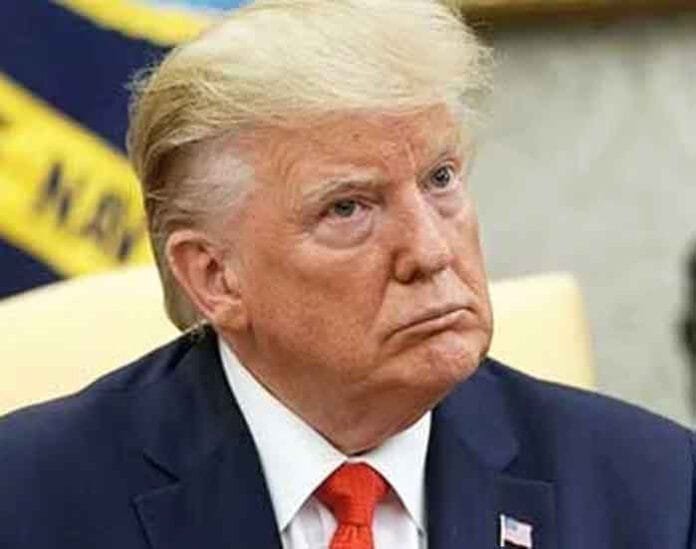A federal judge has temporarily blocked President Donald Trump’s controversial executive order, which aimed to end birthright citizenship in the United States. The order, originally set to take effect on February 20, sought to curtail the constitutional guarantee of American citizenship for children born on U.S. soil, regardless of their parents’ immigration status. This decision has far-reaching implications for immigration policy and the 14th Amendment, and it represents a critical moment in the ongoing debate over birthright citizenship.
The Federal Judge’s Ruling: A Temporary Halt
On Thursday, U.S. District Judge John C. K. Huffman ruled to block President Trump’s executive order, which was scheduled to take effect in just a few weeks. The order proposed that children born in the U.S. to parents without legal immigration status would no longer automatically gain citizenship. In his ruling, Judge Huffman sided with multiple lawsuits filed by states and civil rights groups, which argue that the executive order conflicts with both the 14th Amendment and several Supreme Court precedents.
The lawsuits that led to the federal judge’s decision were filed by states including Washington, Arizona, Illinois, and Oregon, alongside advocacy groups focused on immigrant rights. These plaintiffs argued that the 14th Amendment, which grants citizenship to anyone born on U.S. soil, must be upheld and that Trump’s attempt to end this principle could harm thousands, potentially millions, of children born in the U.S.
The Controversy Surrounding Birthright Citizenship
Birthright citizenship has been a longstanding principle in the United States, enshrined in the 14th Amendment to the U.S. Constitution. Ratified in 1868, this amendment guarantees citizenship to all individuals born in the U.S. or naturalized, regardless of the immigration status of their parents. This provision was enacted after the Civil War to ensure that newly freed African Americans, born on U.S. soil, were granted full citizenship rights.
The 14th Amendment states that “all persons born or naturalized in the United States, and subject to the jurisdiction thereof, are citizens of the United States and of the state wherein they reside.” This constitutional guarantee has been upheld by numerous Supreme Court decisions over the years, including the landmark 1898 case of Wong Kim Ark, which affirmed that children born in the U.S. to Chinese immigrants were entitled to American citizenship.
President Trump’s executive order, however, proposed to change that by arguing that children of undocumented immigrants should not automatically receive U.S. citizenship. The legal justification for this move has been met with skepticism, as the 14th Amendment’s wording appears to directly contradict Trump’s claims.
Impact of the Order: The Legal and Social Ramifications
Had it gone into effect, President Trump’s executive order would have upended birthright citizenship, potentially denying citizenship to thousands of children born in the U.S. to parents living in the country without legal permission. According to a lawsuit filed in Seattle, approximately 255,000 children were born in 2022 to mothers residing in the U.S. illegally, with 153,000 of those children having parents who were both undocumented. The impact of this ruling would have been felt most keenly by immigrant families, particularly those with young children, who rely on the security of citizenship for their children’s future.
The executive order was initially signed by President Trump on his inauguration day, signaling his commitment to addressing what he called “birth tourism.” The President argued that some people were exploiting the U.S. immigration system by coming to the U.S. specifically to give birth to children who would automatically become U.S. citizens. His administration contended that the 14th Amendment did not guarantee citizenship to children born to undocumented immigrants.
However, legal experts and civil rights advocates have countered that the 14th Amendment clearly protects all children born in the U.S. from being deprived of citizenship, regardless of their parents’ immigration status. These groups assert that birthright citizenship is a fundamental constitutional right that cannot be revoked by executive action.
The Supreme Court’s Role and Past Precedents
While Trump’s executive order aimed to reinterpret the 14th Amendment, historical precedents set by the Supreme Court make it clear that birthright citizenship has been a cornerstone of American law. As previously mentioned, in 1898, the Supreme Court ruled in Wong Kim Ark v. United States, affirming that a child born in the U.S. to non-citizen parents automatically became a U.S. citizen. This landmark ruling reinforced the interpretation of the 14th Amendment, stating that the Constitution’s framers intended to grant birthright citizenship to anyone born in the United States, except for children of foreign diplomats and enemy forces.
Furthermore, the Supreme Court has consistently upheld the principle of birthright citizenship, rejecting any attempts to limit it. Legal scholars argue that the Trump administration’s executive order is not only contrary to these longstanding precedents but also risks undermining the constitutional foundation upon which the U.S. was built.
A Growing Debate: Immigration, Citizenship, and National Identity
The issue of birthright citizenship has long been a point of contention in the U.S. immigration debate. While proponents of birthright citizenship argue that it is a key element of American democracy, opponents, including President Trump, claim that it incentivizes illegal immigration and encourages individuals to come to the U.S. solely for the purpose of securing citizenship for their children. The Trump administration’s efforts to change this policy are part of a broader push to curb illegal immigration and reform U.S. immigration laws.
However, critics of the executive order contend that ending birthright citizenship would have devastating social and legal consequences. If children born in the U.S. to undocumented parents are denied citizenship, they could face increased barriers to access to healthcare, education, and other social services. Moreover, the move could create a new class of stateless individuals, leaving thousands of children without any nationality or legal protections.















